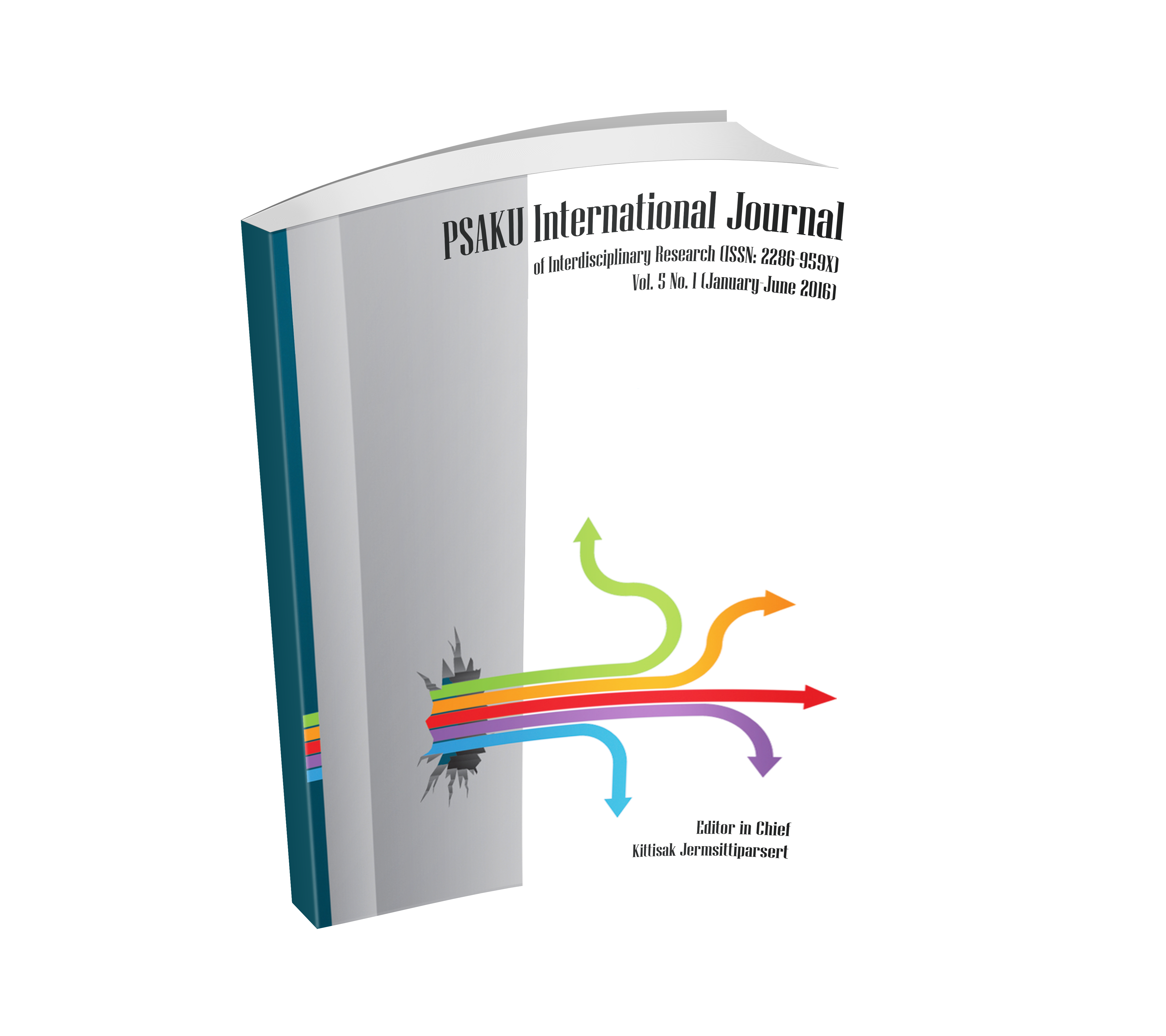Conflicts between Communities and Industry and Conflict Management from Evidence-Based Solutions: A Case Study of Zinc Mine Project, Mae Sod District, Tak Province, Thailand
Keywords:
Cadmium Contamination, Conflicts Management, Evidence-Based Solutions, Zinc Mine ProjectAbstract
This study was conducted to 1) study and analyze causes and results of conflict solving between zinc mine project and the community in the case of cadmium- contamination in Mae Tao watershed, Mae Sod District, Tak Province over the past 10 years, 2) prove the results of conflict resolution between both parties (Project and the community) by using new evidencebased concepts to minimize conflicts between zinc mine project and the local community with respect to cadmium contamination in Mae Tao watershed in the past 10 years (2004-2014); as the problems involved many aspects in terms of such as economy, society, watershed structure, distribution of mineral deposit and mining, cadmium contamination in paddy soil, cadmium contamination in rice and cadmium contamination in human health status. This upon the least case of evidence-based information study found that case 1: problem concerning cadmium contamination in paddy soil in Mae Tao watershed has not yet been dealt with and conflicts are likely to arise again in case there appears stimulus, case 2: upon the use of evidence-based information to moderate extent, problem about cadmium contamination in rice grown in Mae Tao watershed was partially resolved and case 3: by criteria of using evidence-based information to the greatest event and the past that come related issues have been solved, cadmium accumulation in urine of people residing nearby and around Mae Tao watershed was believed not to get worse to cause Itai-Itai disease. Evidence base concept apparently gives a new neutral power in analysis of conflict resolutions in three case studies. However, the degree of success in conflict management by this approach depends on the complexity of the problems in individual case. The present study provides a convincing conclusion that the more the evidence-based knowledge the greater the success in conflict resolution.
Downloads












.png)


